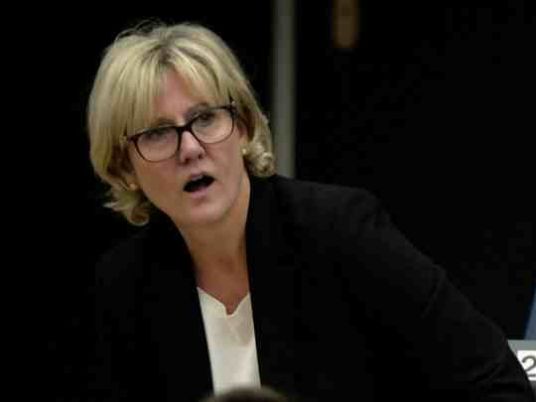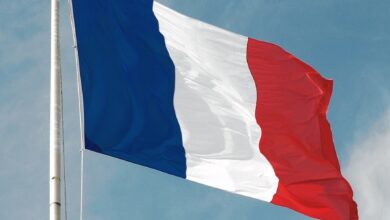
As France's right-wing Republicans punish a leading figure over her comments about race, the party is facing a tricky balancing act in trying to pinch far-right votes without losing moderate supporters.
Nadine Morano, once a close ally of former president Nicolas Sarkozy, was struck off a list of candidates for upcoming regional elections by party bosses on Wednesday over her comments that France was a "Judeo-Christian country… of white race".
The uproar over her statements has highlighted the difficult balance Sarkozy must strike as head of The Republicans, trying to sound tough on immigration, Islam and security without losing the all-important middle ground.
He took a few days to react to Morano's comments, but eventually called on her to apologise, saying "I will not accept any slip-ups" ahead of December's regional polls, the last test before the presidential election in 2017.
But the incident was the just the latest in a string of controversial moments for The Republicans, whose members often sound as though they are trying to mimic the surging far-right National Front (FN), led by Marine Le Pen.
With the ruling Socialists deeply unpopular as a result of the sluggish economy, Sarkozy knows the FN is the bigger threat.
The leader himself got in trouble for comparing immigration to a "leaky pipe" this summer, which many saw as worryingly similar to Le Pen's fear of "submergence" by foreigners.
Sarkozy has also backed mayors from his party who have taken to cancelling halal options on school dinners — which is claimed to be in support of French secularism, but criticised by many as a not-so-subtle attack on Muslims.
'A simple problem'
The Republicans' rightward tack is not convincing everyone. In a recent poll, 60 percent of voters said the party was just chasing the coat-tails of the FN.
"The right has a simple problem: the anti-immigrant position is the best way to appeal to voters who like Le Pen, but in doing so you alienate the moderate and centrist voters," said political analyst Thomas Guenole.
The Republicans are still expecting a comfortable victory in December's polls, matching their success in local elections at the start of the year.
But the FN could snatch a couple of regions — especially Nord-Pas-de-Calais-Picardie in the northeast where Le Pen is standing, and a traditional stronghold of the party in the southeast, Provence-Alpes-Cote-d'Azur.
"The Republicans are walking a tightrope and it's not easy," said Jerome Fourquet, of pollsters Ifop.
The party's candidate against Le Pen in the northeast is Xavier Bertrand, who has gone strong on security in a bid to outdo the FN chief.
He has called for France to be "protected" against the jihadists by waging "total war" against the Islamic State group.
In the southeast, the party's mayor in Nice, Christian Estrosi, criticises the "hate speech" of the FN, but still spoke of a "fifth column" of Islamists in the wake of January's jihadist attacks in Paris.
"There is no miracle solution in deciding whether to denounce or compete with the FN," said Fourquet.
But he added that The Republicans' lurch to the right could end up legitimising the FN's position and people tend to see through attempts to imitate more extreme parties.
"People prefer the original to the copy."




